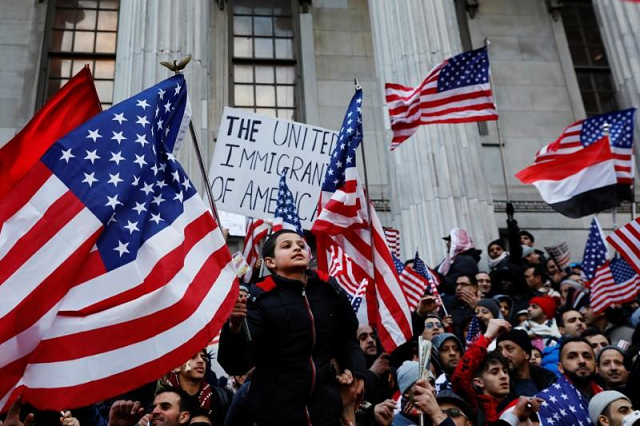Judge blocks transfer of US 'enemy combatant' to Saudis
President Donald Trump has pledged to be tough on Americans who fight for jihadist groups

The American Civil Liberties Union, which represents the man, asked the court Wednesday to block the transfer, demanding that he be charged under US law or freed.
PHOTO: REUTERS
In a test case of the Trump administration's policy on Americans who join and fight for jihadist groups, Judge Tanya Chutkan issued a preliminary injunction blocking Defense Secretary Jim Mattis from transferring the unnamed detainee "from US custody," a court document said.
Dubbed "John Doe" in court documents, the man was detained in Syria last September and was turned over to the US military, who moved him to Iraq where he was interrogated by military and FBI officials.
Bangladeshi charged with 'Islamic State-inspired' Australia stabbing
They branded him an "enemy combatant," but after seven months, have not charged him with any crime. Chutkan's ruling protected the detainee from being moved to another country without being charged or tried. A transfer could have taken place within hours.
Justice Department lawyers earlier Thursday indicated they would appeal a court order blocking the transfer.
The case is the first of a US citizen detained and accused of joining IS.
Scores of Americans traveled to Iraq and Syria after 2011 to enlist in the group and could pose legal challenges if caught as US and allied forces near elimination of the group on the battlefield.
President Donald Trump has pledged to be tough on Americans who fight for jihadist groups. But bringing them to trial in US courts could raise difficult issues, including the unresolved question of whether the US military had the legal authority to detain IS fighters.
FIA arrests terrorist involved in recruiting people for Islamic State in Karachi
US, European and other countries are wrestling with how to deal with hundreds of "foreign fighters" now held in Iraq and Syria after the self-proclaimed IS caliphate collapsed.
On Monday the Justice Department gave a required 72 hour notice saying they planned to send "John Doe" to a third country, which has agreed to accept him.
Though the country has not been officially identified, multiple court document references point to Saudi Arabia, and lawyers have not disputed media reports naming the country.
The Justice Department lawyers said that sending him to the third country was an issue of maintaining strong relations with a US ally. But they could not discuss, at least publicly, what would happen to him once he was transferred.
Al Qaeda still going strong as Islamic State crumbles: UN report
The man has not been charged with a crime in Saudi Arabia, and the United States does not have an extradition treaty with the country, which has imprisoned numerous people with alleged ties to radical jihadists.
The American Civil Liberties Union, which represents the man, asked the court Wednesday to block the transfer, and demanded that he be charged under US law or freed.
"Forcibly rendering him to another country would be an unconscionable violation of his constitutional rights," said ACLU attorney Jonathan Hafetz.



















COMMENTS
Comments are moderated and generally will be posted if they are on-topic and not abusive.
For more information, please see our Comments FAQ